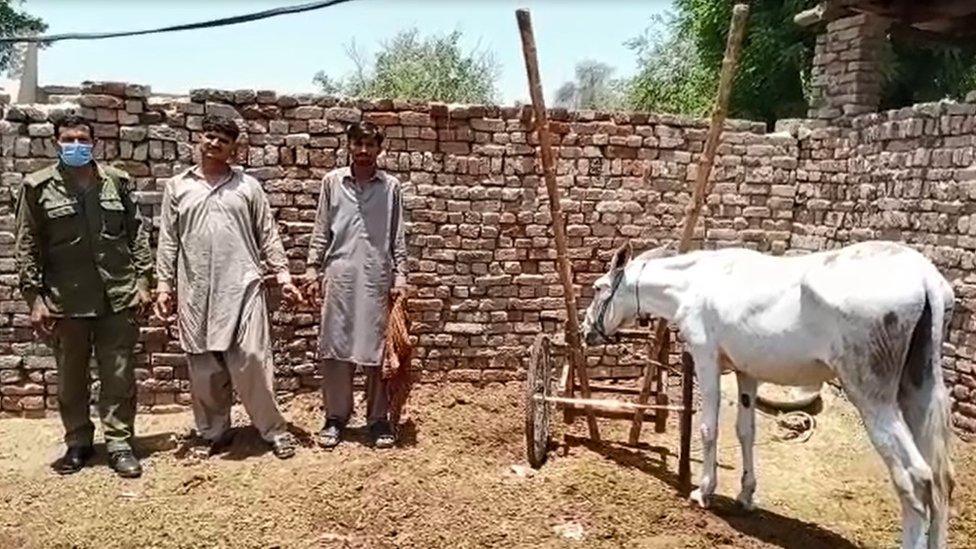Donkey released after Pakistan police swoop on gambling race
- Published

The donkey - and cart - was held by police for four days
A court in Pakistan has released a donkey that had been held following a case of illegal gambling.
Eight men arrested in the same case were given bail the day after police targeted an illegal donkey race in a rural area in the south of Pakistan.
The men had wagered bets on a challenge that the donkey could run three furlongs (600 metres) in 40 seconds.
But there were legal complications concerning the release of the donkey, which had been impounded by the police.
The story led to a flurry of media interest after reports that the donkey had been arrested and later granted bail. However, police told the 大象传媒 that the animal had simply been impounded for four days.
Donkeys are frequently used as beasts of burden in rural areas of Pakistan and betting on donkey-cart races is not uncommon.
The recent case occurred in the rural outskirts of Rahimyar Khan city. Police swooped on the race before it began.
Apart from the donkey, the officers also recovered from the scene a donkey cart, 121,000 rupees (about $740; 拢580), a cloth sheet spread on the ground on which the betting money was arranged, and a stop watch.
The head of the local police force with the cash seized at the race
While the rest of the case property has been kept under a seal at a police lock-up, the donkey spent its four days of captivity tied in a cattle yard near the police station.
The incident attracted local media interest and journalists were seen hanging about the cattle yard, taking pictures and interviewing police.
On Wednesday, the court handed custody of the donkey to its owner, Ghulam Mustafa (known by his alias Kaka), on condition of safe-keeping until the case was decided.
When oxen were more in use in Pakistan, several decades ago, they would often be impounded by police following a dispute over ownership.
It happens far less nowadays, prompting reports in this case that the donkey had been formally detained.
- Published29 April 2019